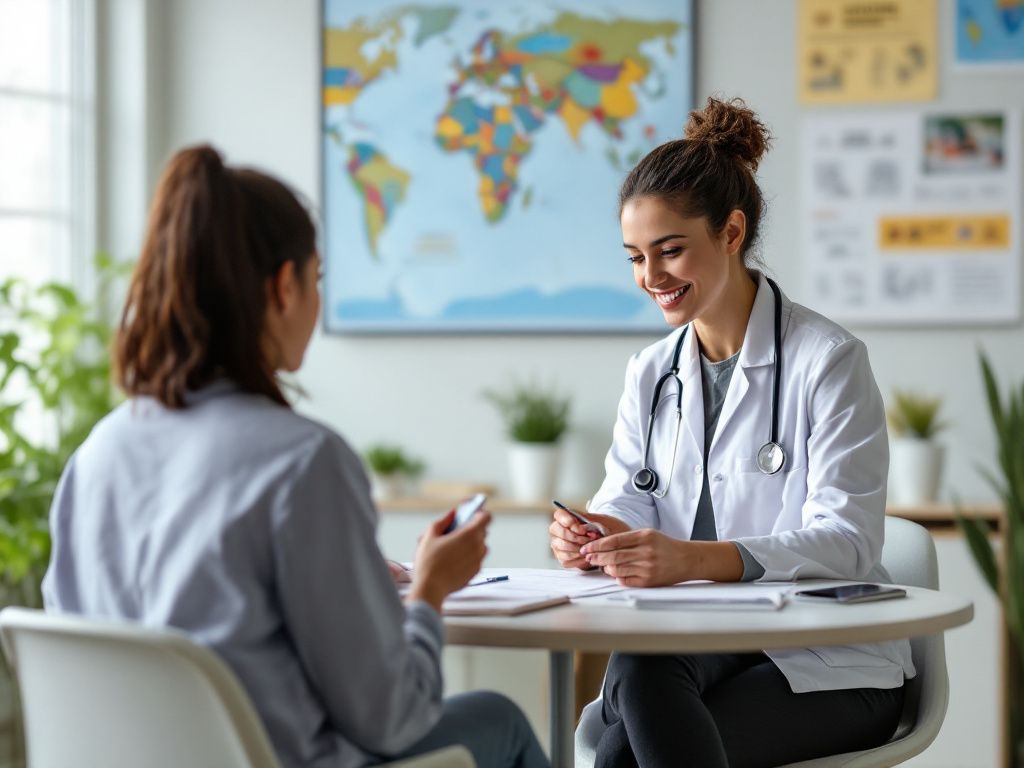Malaria Prevention 101: Tips & Medication for Safe Travels
Travelling to a region where malaria is prevalent can be both exciting and challenging. Whether you are a seasoned traveller or a healthcare professional advising patients, understanding malaria prevention is crucial. This article provides a listicle of practical tips and essential medication advice to help you stay safe while exploring the world. With accurate, engaging information presented in a natural, conversational tone, you will be better equipped to manage your malaria risk and enjoy your adventures with confidence.
1. Understand Your Malaria Risk
The first step in effective malaria prevention is recognising the areas where malaria is endemic. Not all parts of the world carry the same level of risk. Before planning your journey, research the specific regions you intend to visit. Consider consulting travel advisories and health organisations, which offer up-to-date information on malaria outbreaks, local transmission rates, and the strains present in different areas.
2. Consult a Travel Health Expert
Professional advice tailored to your travel itinerary is invaluable. Booking an appointment with a healthcare expert ensures that you receive personalised recommendations for prophylactic medication and other preventative strategies. Specialists can help determine the most appropriate malaria prevention regimen based on factors such as your destination, duration of travel, and personal health profile. For expert guidance, consider visiting the Wyborns Pharmacy appointment page today.
3. Choose the Right Prophylactic Medication
There are several anti-malarial medications available, and the choice depends on your destination’s malaria resistance patterns, your medical history, and potential side effects. Commonly prescribed medications include atovaquone-proguanil (Malarone), doxycycline, and mefloquine. Your healthcare provider will help you weigh the pros and cons, ensuring you start the medication with ample time before your journey and continue it for the recommended period after returning home.
4. Utilize Mosquito Repellents Effectively
Topical mosquito repellents are a frontline defence against malaria. Choose repellents with active ingredients such as DEET, picaridin, or oil of lemon eucalyptus. Apply the repellent to exposed areas of skin and reapply frequently, especially if you are sweating or spending extended periods outdoors. Additionally, consider using insect repellent lotions that are safe for children and individuals with sensitive skin, ensuring complete coverage and protection throughout your travels.
5. Wear Protective Clothing
When exploring malaria-prone regions, wearing long-sleeved shirts, trousers, and socks can provide an extra layer of defence against mosquito bites. Colour choices can also make a difference; lighter colours tend to be less attractive to mosquitoes. At dusk and dawn—prime times for mosquito activity—focus on keeping as much skin covered as possible. This simple strategy, combined with other preventive measures, can significantly reduce your exposure to malaria-carrying mosquitoes.
6. Use Insecticide-Treated Nets and Additional Barriers
Sleeping arrangements play a crucial role in preventing malaria. When staying in accommodations where mosquitoes are present, utilise insecticide-treated nets over beds. This not only provides a physical barrier but also actively repels mosquitoes. In addition, consider using indoor residual spraying where available, or portable mosquito nets if you are on a camping trip. These measures are particularly important if you are travelling in areas with high transmission rates or if your accommodation offers limited protection.
7. Maintain a Vigilant Routine: Prevention Doesn’t End at the Pharmacy
Malaria prevention is an ongoing process, not a one-time event. Establish a routine that includes applying repellent, wearing protective clothing, and ensuring all potential exposure times are covered—particularly during the evening. Travelers should be mindful of local announcements regarding mosquito activity and adhere strictly to medication schedules. This vigilant approach further minimises the risk of infection and complements any medication you are taking.
8. Stay Informed About Local Health Alerts and Updates
Keep yourself updated with the latest travel and health news concerning your destination. Local health departments, travel clinics, and international health organisations provide crucial information about emerging outbreaks and might issue additional recommendations on malaria prevention. By staying informed, you can quickly adjust your preventive measures as needed. This proactive step is invaluable, especially if you are a healthcare professional advising patients on safe travel practices.
9. Integrate Prevention Into Your Travel Plans
Prevention is not solely about medication and repellents—it also involves incorporating safe habits into your overall travel planning. Consider your itinerary carefully, opting for well-reviewed accommodations that prioritize mosquito control measures and staying in areas with robust public health services. Leveraging local resources and seeking the advice of resident experts can add an extra layer of assurance and enhance your overall travel experience.
10. Follow Up After Your Travels
Your commitment to malaria prevention should extend even after you have returned home. Monitor your health closely for any signs of malaria, especially if you experience fever, chills, or flu-like symptoms. Should you suspect malaria, seek medical advice immediately. A follow-up consultation with a healthcare professional is advisable if you experienced any potential exposure during your trip, ensuring that any arising symptoms are promptly addressed.
Malaria prevention is a multi-layered approach involving preparation, the right medication, and prudent lifestyle choices during your travels. Whether you are planning an adventurous trip or advising patients in a healthcare setting, these practical steps are designed to empower you with the reliable knowledge needed to stay healthy and enjoy safe travels.
If you are planning your next journey and want to ensure that you are fully prepared against malaria, we invite you to take the next step. Book an appointment with our experts at Wyborns Pharmacy to discuss your travel health needs and ensure that your prevention strategy is optimised for your destination.

